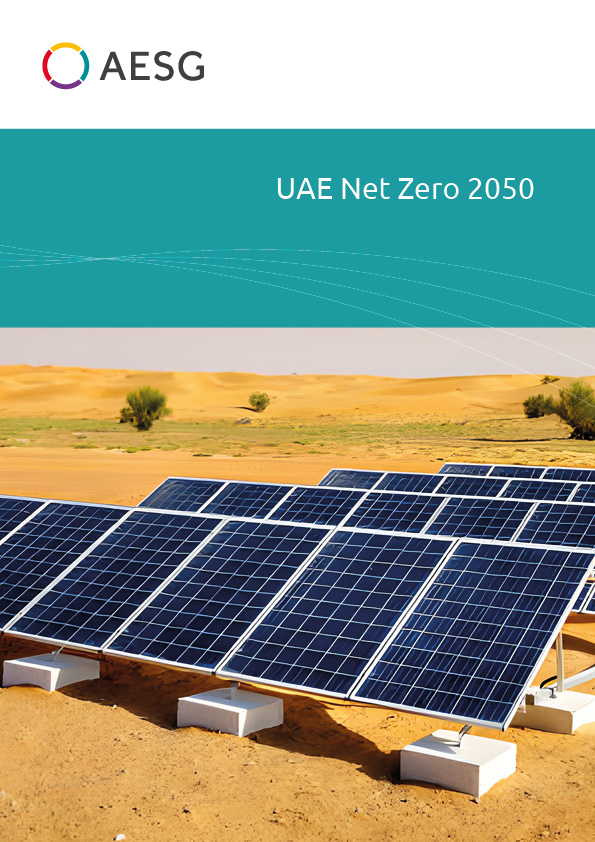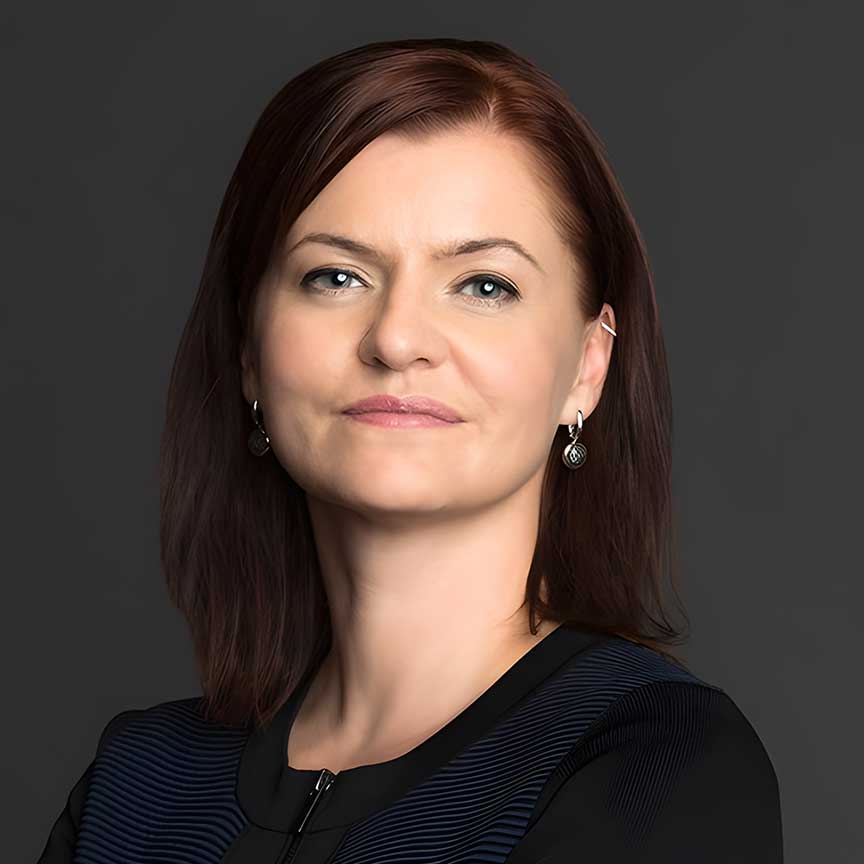
60 years ago exactly, the United States decided to invest in a space programme to take the first American to the moon. The UAE’s decision to achieve Net Zero Carbon target by 2050 is similar in its ambition and intent to create “a national drive to achieve net-zero emissions by 2050, making the Emirates the first Middle East and North Africa (MENA) nation to do so”.
« We choose to go to the moon in this decade and do the other things, not because they are easy, but because they are hard, because that goal will serve to organize and measure the best of our energies and skills, because that challenge is the one we are willing to accept, one we are unwilling to postpone and the one, which we intend to win, and the others, too. »
– Former United States President Kennedy, 1962
The first American citizen stood on the moon in less than a decade. More than that, the space programme delivered a long list of inventions that significantly improved our life – from scratch resistant lenses, through solar cells to workout machines.
The UAE stands today with a challenge of a grand scale, decarbonising the world’s leading oil and gas producer in less than three decades. This strategic decision will change the nature of the local economy and the way we do business, not because it is easy, but because decarbonisation will channel innovation, leadership and deliver a better life in the UAE and beyond its borders. Going net zero will entail changing the core of the UAE economy, the oil and gas sector, hence the scale of the challenge.
At AESG, we have a unique mix of deep technical expertise, digital capabilities and high calibre people who already serve our clients to deliver on the Net Zero Carbon objective. We are on a journey of supporting our clients, raising awareness and aligning with their needs in terms of ESG, Sustainability and Net Zero compliance. We answer our clients compelling needs that put ESG, Sustainability and Net Zero at the core of their business.
We design Net Zero strategies and roadmaps, advise on technologies and technical guidelines, build digital tools that integrate decarbonisation in business processes and support clients in building, oil and gas, utilities, large infrastructure and government to chart their own journey to Net Zero.
Our team has gathered insights on what are the next steps for government and private sector clients to take in order to accelerate the pace of Net Zero transformation.
On the occasion of the Abu Dhabi Sustainability Week, we want to initiate the important and necessary work to organize and measure our efforts to support the UAE in achieving the Net Zero Target by 2050. Watch out for our announcement of our interactive Pathway to Net Zero for the built sector!
Government will lead by example on UAE Net Zero 2050
Government has already played a central role in planning and designing the Net Zero 2050 target. A number of federal and Emirate level government entities are already working to integrate decarbonisation in their policies and processes (See a list at the end of this article). Going forward, we can see three pillars of government strategies and policies to implement the visionary UAE Net Zero 2050 plan.
Experience from other countries suggests that the level of Net Zero ambition requires central management and tracking of decarbonisation targets.
First we can’t manage what we can’t measure. That’s why the UAE requires a comprehensive carbon footprint analysis combined with analysis of the most important carbon producing hotspots and continues updating and detailing it on an annual basis. The UAE government portal reports that « In 1990, the UAE emitted 32.6 tonnes of CO2 per person per year. In 2010, the figure dropped to 21.9 tonnes per person per year. » That’s the type of tracking we need along with forecasts of future efforts.
Second, the indication of specific % reductions for different sectors of the economy is needed to drive sector level initiatives and encourage innovations from government, large companies and startups. Direction on technology innovations required from each sector can foster these efforts in the right direction. Recent announcements of Abu Dhabi building a hydrogen ecosystem are an example.
Third, governments can provide support tools to jump-start decarbonisation efforts such as integration of decarbonisation requirements in public procurement, development of public-private partnerships and allocation of financial support to flagship projects. Government entities can also integrate Net Zero across their processes and engagement with stakeholders and operators. The Abu Dhabi Department of Energy for example launched a clean certification programme to support procurement of zero carbon energy in the Emirate at scale. A number of entities both at federal and emirate level are already developing sustainability and Net Zero guidelines to provide direction to the market.
The UAE private sector can integrate decarbonisation to drive its competitiveness
The Net Zero train has started moving and ultimately will permeate across all the sectors of the economy in UAE and globally. Companies generally face four types of decarbonisation pressures:
In order to understand and act on decarbonisation risks and opportunities, companies can act today.
First, companies require understanding of their carbon footprint and its evolution over time. This is not a one time analysis, rather a continuous process which establishes a corporate carbon accounting and progressively puts a price on carbon, the same way we value today’s electricity or water supply. Carbon accounting requires a suite of tools (digital) and processes to make sure that employees understand the carbon content of their business responsibility. While companies can start with scope that is in their operational control, a full understanding of their supply chain and working towards its decarbonisation will become more important over time.
Second, companies need a business-oriented hotspot analysis and roadmap for decarbonisation with technology options. For every business, be it a retail player, oil and gas assets operator or transport company, there is a way to assess and identify key decarbonisation options which are feasible now (energy efficiency, renewables, electric mobility, energy storage, carbon credits and offsets), and those that will constitute deep decarbonisation pathway after 2030 (hydrogen, carbon capture and valorisation, direct air capture, nature-based solutions, etc). Those technology options will constitute the core of a roadmap with specific actions, projects and initiatives. Timelines of 5 years for immediate planning and 10 to 15 years for long term planning are commonly used along with a long-term commitment to target Net Zero by 2050.
Third, introducing dedicated tools, processes and education across employees and stakeholders (suppliers alike) is what will make the Net Zero journey real and support each of its milestones.
Over the past decade we have witnessed an incredible business transformation using digital technology. The next decade, will be marked by transformation via decarbonisation and following similar pathway:
In support of these actions, for our clients with built assets, AESG will soon issue a Net Zero Pathway – an online tool for quick carbon footprint assessment and organisations readiness to decarbonise its operations.
Yet, decarbonisation is far from being a cookie-cutter business. Net Zero delivery is as much about the hardware solutions that deliver lower carbon footprint, as well as the traditional building of trust and getting buy-in for radically different ways of thinking. WE ALL NEED, deep technical expertise, digital capability and high calibre teams to address the compelling needs of Net Zero journey. We need nothing less than Net Zero Intervention teams that can support building up of decarbonisation capabilities across your organisation.
To deliver Net Zero, we need to re-examine the entire value chain and business operating model of our clients’ business to understand the sustainability & ESG pain points, and deliver holistic solutions that will identify, evaluate and prioritise our clients decarbonisation initiatives.”In line with the Net Zero announcements, Sustainability and ESG regulatory requirements are evolving and shifting the industry focus from voluntary to mandatory reporting. At AESG, we are supporting clients from investment industries, publicly listed entities, and international organisations to disclose their achievements using our comprehensive approach for ESG data collection, analytics and reporting.”
As we start 2022, it is only telling that our teams in AESG work simultaneously with several clients today to Design and plan Net Zero Roadmap, Develop technical guidelines for specific market operators and Design and pilot digital tools for Net Zero.
What these projects have in common is that they place Net Zero at the heart of the business and that’s how we can support the UAE in achieving Net Zero 2050.
Join us for the ride and book your conversation today. Contact us
Examples of Net Zero announcements and initiatives in the UAE:
How can AESG help?
AESG is a specialist consultancy, engineering and advisory firm headquartered in London, Dubai and Singapore working on projects throughout Europe, Asia and Middle East. We pride ourselves as industry leaders in each of the services that we offer. We have one of the largest dedicated teams with decades of cumulative experience in sustainable design, fire and life safety, façade engineering, commissioning, data management for the built environment, waste management, environmental consultancy, acoustics, strategy and advisory and carbon management.

Partner and Global Director of Strategy and Advisory, AESG
Katarina Uherova Hasbani is AESG’s Partner and Global Director of our Strategy and Advisory division.
Katarina is an energy transition and sustainability professional with comprehensive experience in leadership positions across the value chain of the energy industry, encompassing utilities, oil and gas and renewables and large energy users. She has proven experience as an effective leader of global cross-functional teams and has spent 18 years designing strategies, public policies and implementing transformation projects across more than 30 countries in the Middle East, South-East Asia and Europe. Katarina covered cross-cutting themes shaping energy transition, including net zero, climate change, environmental protection, and sustainability.
She is an active public speaker and has authored a variety of studies on energy transition and decarbonisation. She is active in industry associations and is also currently a member of the Global Executive Committee for Insead Energy Alumni Club and local UAE Insead Alumni Association. Katarina mentors actively to promote balanced leadership among her industry peers and young professionals.
For further information relating to specialist consultancy engineering services, feel free to contact us